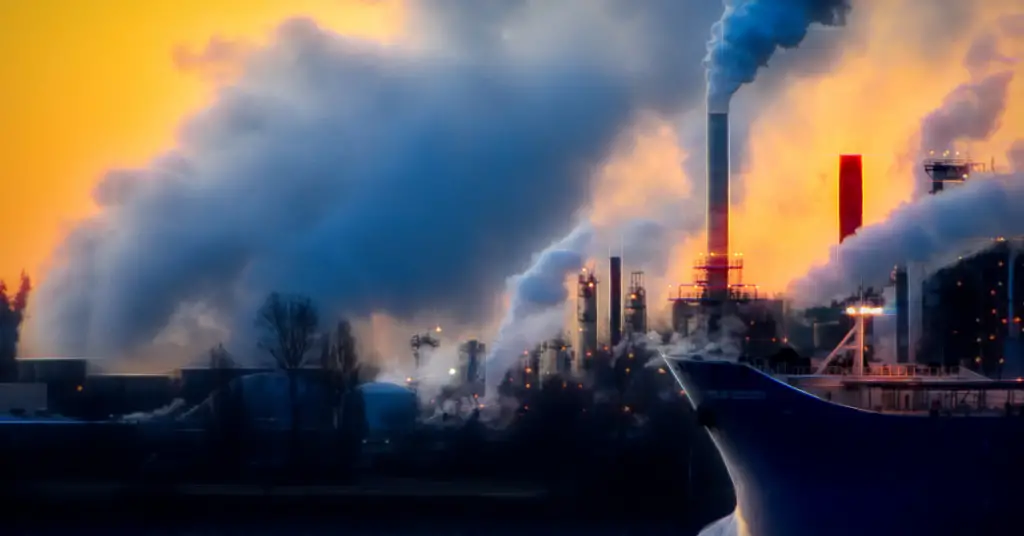In 2007, the United Nations IPCC adopted a report based on an expert review of scientific evidence from around the world. The authors came to four related conclusions: That both air temperature and sea level have risen faster over the past century than in the past. The warmth of the last half-century is unusual in the context of the last 1,300 years (at least). Global warming will continue unless something is done to stop it.
You probably know from the news or the newspaper that countries around the world are facing serious problems, in part due to climate change. These are the main effects of global warming that have led to ecological and economic instability:
Drought conditions: The area affected by drought worldwide has doubled in the past 30 years. The two main causes of drought areas are:
- The water has dried up, so it flows: It’s no secret that hunger is part of everyday life in many countries on the African continent. Many inland lakes and rivers, which provide much of the fish, are almost dry. In the US, both Arizona and California suffer from persistent severe water shortages.
- Dramatically reduced rainfall (in some areas): Reduced rainfall makes the country drier than normal and opens the door to wildfires that can start small and quickly get out of control. In Australia and the South Pacific, severe bushfire threats are issued almost every year due to falling rains in several major cities and towns.
The timeline shows the progress of global pollution: 1
1800-1860 – Engineering: New engineering techniques lead to the advent of more modern machines and factories. Steam power and railroads expand the urban areas.
1830–1900: Industrial city growth: Cities grow remarkably due to the increase in manufacturing and the job opportunities that come with it. Social and housing problems appear, as do the first serious environmental problems.
1870-1914 The Second industrial revolution: the advent of electricity and medicine creates a new industrial wave.
1914–1930 – World War I: War depletes global resources, but the age of mass production helps the world recover.
1930–1968 – Modernism: World War II and its advances in weaponry are followed by nuclear power, space exploration, and a better understanding of DNA and the structure of life. The post-war period is characterized by rapid urban expansion and increased consumption.
1960-2000 – The Age of Ambivalence: The effects of uncontrolled consumption lead to the birth of the environmental movement. The advent of computers improves the quantity and distribution of information.
Increasing Floods: Large parts of the low-lying lands in Bangladesh and India are becoming more prone to flooding due to rising sea levels, increased rainfall intensity, and lowering of water tables due to over-irrigation. In Bangladesh, severe flooding is forcing millions of people from their homes. each year.
The following causes of increased flooding also affect other countries:
- Sea level rise: Sea level rise threatens to flood many Pacific islands. Kiribati, Tuvalu, and the atolls that make up the Marshall Islands may already be disappearing, as are Tebua, Tarawa, and Abanuea.
- Unusually heavy rain: Some floods in Europe have been caused by unusually heavy rain; an example is a flood that swept over Prague in 2002.
- Rapid snowmelt: Annual flooding is now the norm in many parts of Europe, in part due to rapid snowmelt in Alpine regions as warmer temperatures set in. Based on a scenario in which greenhouse gases continue to accumulate in the atmosphere, the IPCC projects that global temperatures will rise by 0.36 degrees Fahrenheit (0. 2 degrees Celsius) per decade through 2020.
This surge will result in more of the same impacts as the world has seen in the last century. It is expected in the coming years that local, national, and international governments will have to deal with the consequences of climate change.

Erzsebet Frey (Eli Frey) is an ecologist and online entrepreneur with a Master of Science in Ecology from the University of Belgrade. Originally from Serbia, she has lived in Sri Lanka since 2017. Eli has worked internationally in countries like Oman, Brazil, Germany, and Sri Lanka. In 2018, she expanded into SEO and blogging, completing courses from UC Davis and Edinburgh. Eli has founded multiple websites focused on biology, ecology, environmental science, sustainable and simple living, and outdoor activities. She enjoys creating nature and simple living videos on YouTube and participates in speleology, diving, and hiking.

